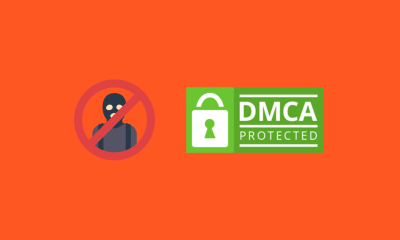Understanding what it means when a domain expires or becomes inactive is essential for anyone who owns a website or plans to do so in the future. A domain name is an address that people use to find your website on the internet.
It is a unique identifier that helps people locate your site among the billions of websites available online. In this article, we will explore what it means when a domain expires or becomes inactive and the implications it can have on your website’s visibility and accessibility.
What is a Domain?
Before delving into what happens when a domain expires or becomes inactive, let’s define what a domain is. A domain is a unique address that identifies a website on the internet. It is composed of two parts: the domain name and the top-level domain (TLD). For example, in www.example.com, “example” is the domain name, and “.com” is the TLD.
When you register a domain, you acquire the right to use that name for a specified period. It is crucial to renew the domain registration before it expires to ensure that you retain ownership of the domain name and continue to use it.
What Happens When a Domain Expires?
When a domain registration expires, the domain name becomes available for registration by anyone else. This means that someone else can register the domain name and use it for their website.
If you fail to renew your domain registration before it expires, you risk losing control of the domain name, and it can have significant consequences for your website’s visibility and accessibility.
If someone else registers your expired domain name, they can redirect your previous website visitors to their own site, which could result in lost traffic, revenue, and customers. It can also negatively impact your search engine rankings, as search engines may not recognize your website as the original source for your content.
How to Renew an Expired Domain
If your domain has expired, you can usually renew it within a specified grace period. The grace period varies depending on the TLD and the domain registrar, but it is typically between 30 and 45 days. During this period, you can still renew your domain registration without losing ownership of the domain name.
After the grace period, your domain enters a redemption period, during which you can still renew your domain registration, but you may incur additional fees. If you fail to renew your domain during the redemption period, the domain becomes available for registration by anyone else.
What Happens When a Domain Becomes Inactive?
A domain becomes inactive when the website associated with it is no longer accessible on the internet. This could happen for several reasons, such as technical issues, server downtime, or a deliberate decision to take the website offline.
When a domain becomes inactive, the website associated with it is no longer accessible, and visitors will see an error message or a blank page. This can have negative consequences for your website’s visibility and accessibility, as search engines may interpret your website as irrelevant or outdated, negatively impacting your search engine rankings.
How to Avoid an Inactive Domain
To avoid having an inactive domain, it is essential to ensure that your website is always accessible on the internet. Regularly check your website’s uptime and resolve any technical issues promptly. It is also crucial to renew your domain registration before it expires to avoid losing control of your domain name.
What is The Difference Between Inactive and Expired Domain Names?
An inactive domain and an expired domain are two different concepts related to a domain name. An expired domain is a domain name whose registration period has ended, and the owner has not renewed it. On the other hand, an inactive domain is a domain name that is still registered, but the website associated with it is no longer accessible on the internet.
When a domain name expires, it becomes available for registration by anyone else, and the previous owner may lose control of the domain name. In contrast, an inactive domain name may still be under the control of the owner, but the website associated with it is no longer accessible.
The consequences of an expired domain and an inactive domain are different. With an expired domain, the previous owner may lose control of the domain name, resulting in lost traffic, revenue, and customers. The new owner of the domain name may redirect the previous website visitors to their own site, resulting in further losses.
In contrast, an inactive domain name can negatively impact a website’s visibility and accessibility, as search engines may interpret the website as irrelevant or outdated, negatively affecting its search engine rankings. However, the domain owner retains control of the domain name, and the website can be made accessible again by resolving any technical issues or bringing the website back online.
In summary, an expired domain and an inactive domain are two different concepts related to a domain name. An expired domain is a domain name whose registration period has ended and can result in the previous owner losing control of the domain name.
An inactive domain is a domain name that is still registered, but the website associated with it is no longer accessible and can negatively impact a website’s visibility and accessibility.
Conclusion
In conclusion, a domain name is a vital component of your website, and it is crucial to understand what happens when it expires or becomes inactive. When a domain expires, it becomes available for registration by anyone else, and you risk losing control of your website’s traffic, revenue, and customers.
When a domain becomes inactive, your website is no longer accessible on the internet, and it can negatively impact your search engine rankings. Therefore, it is crucial to renew your domain registration on time and ensure that your website is always active.













